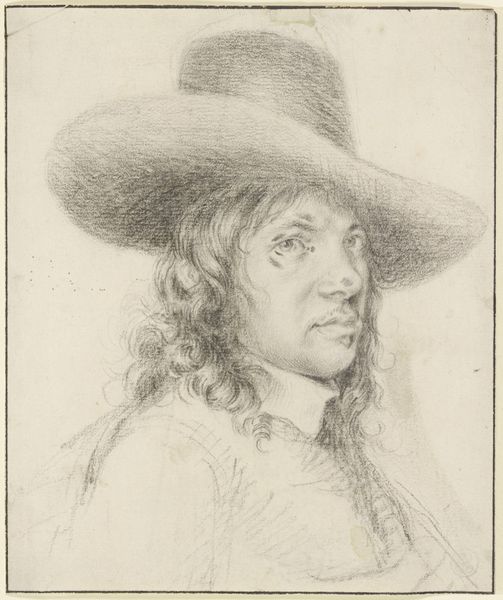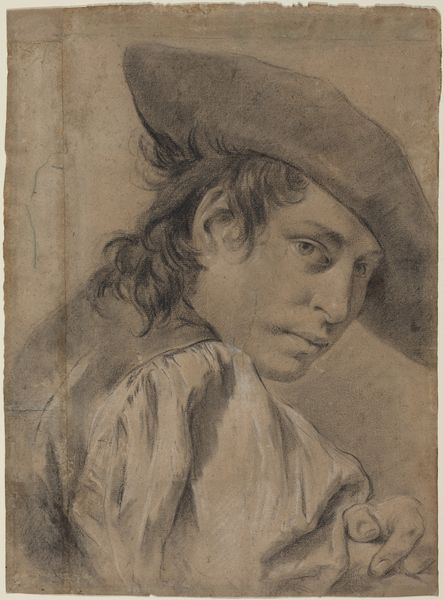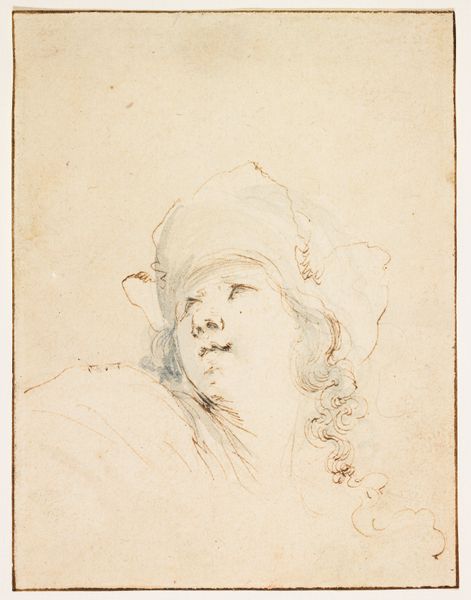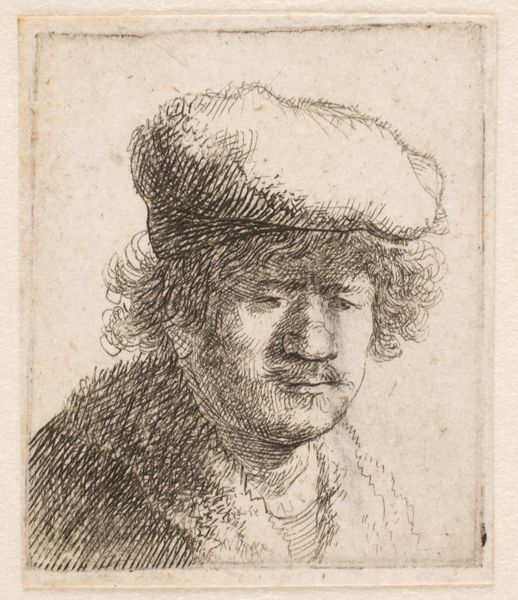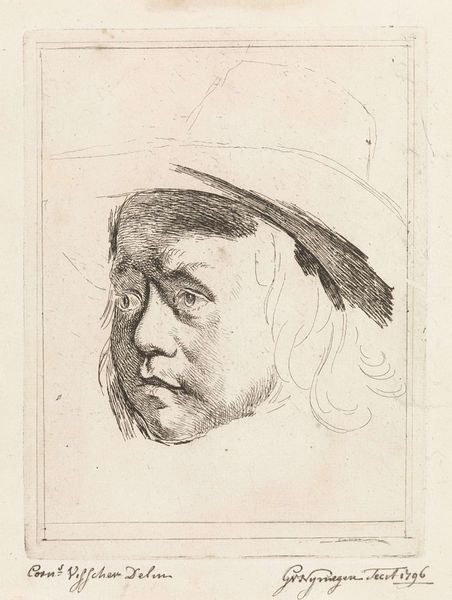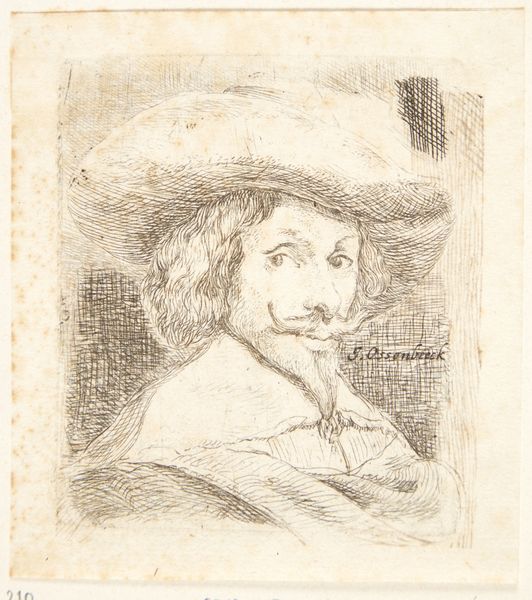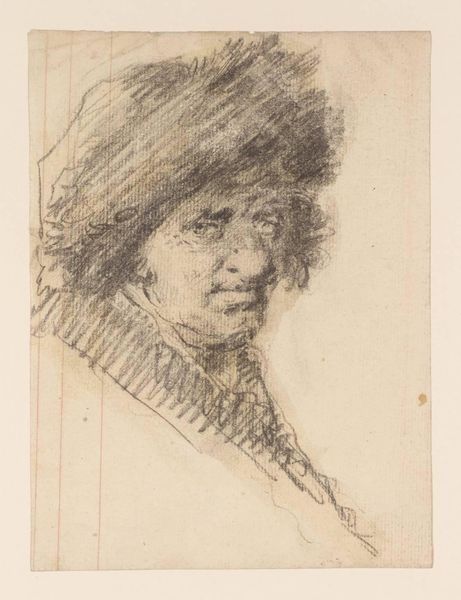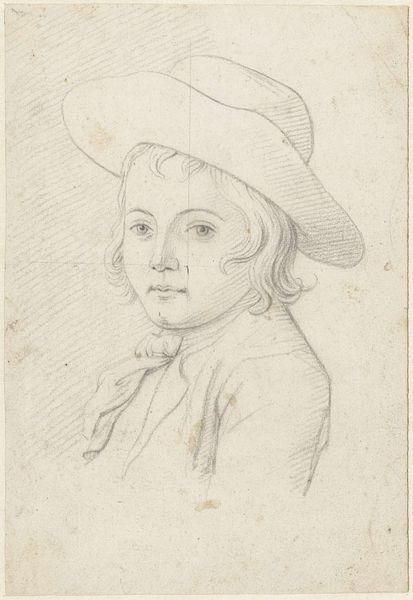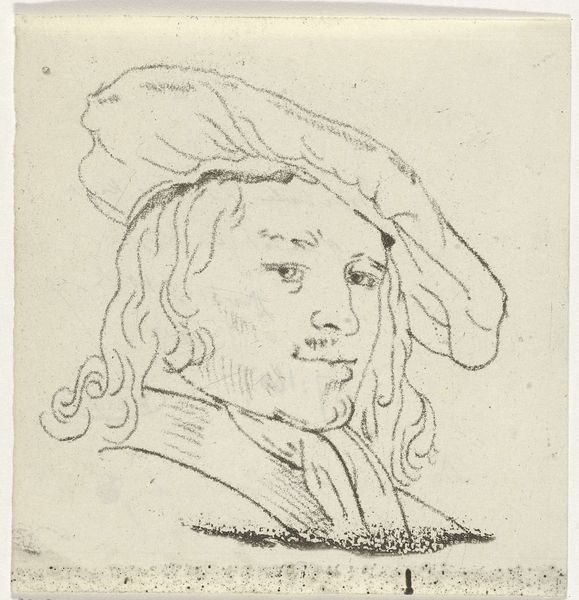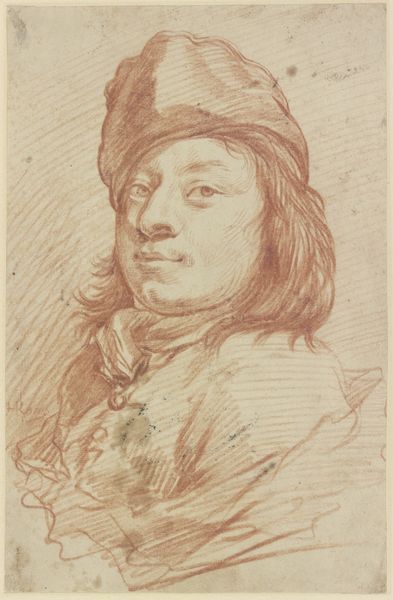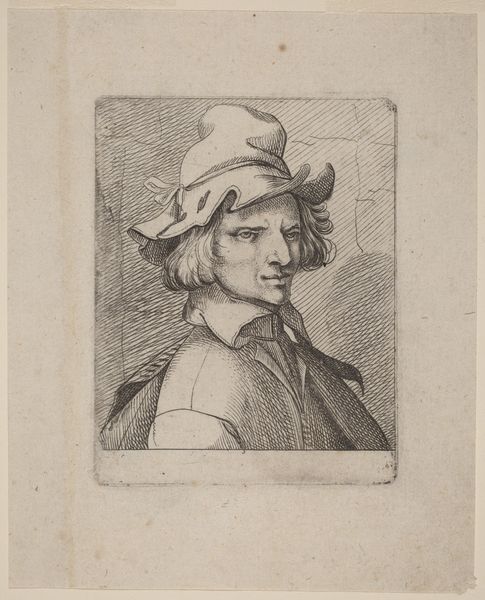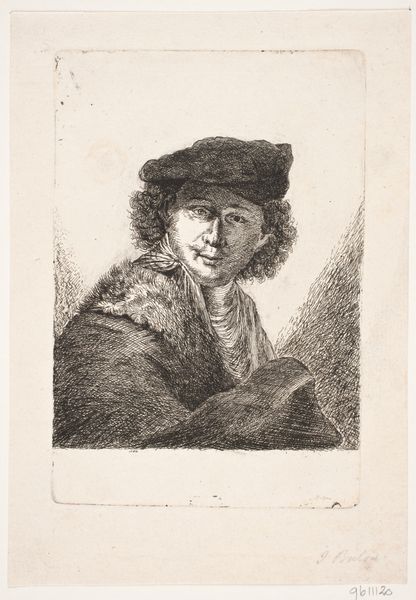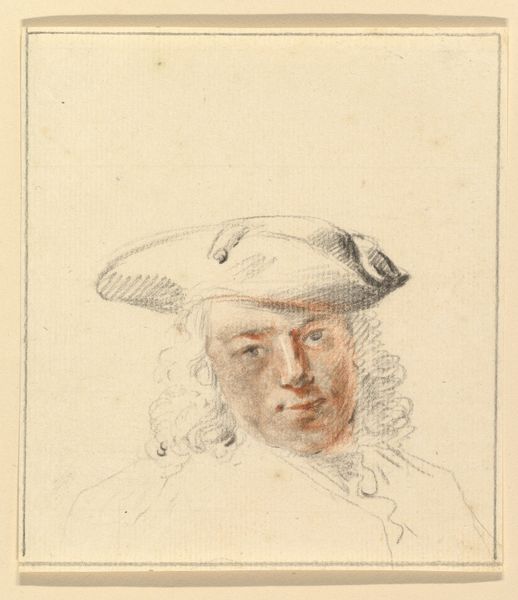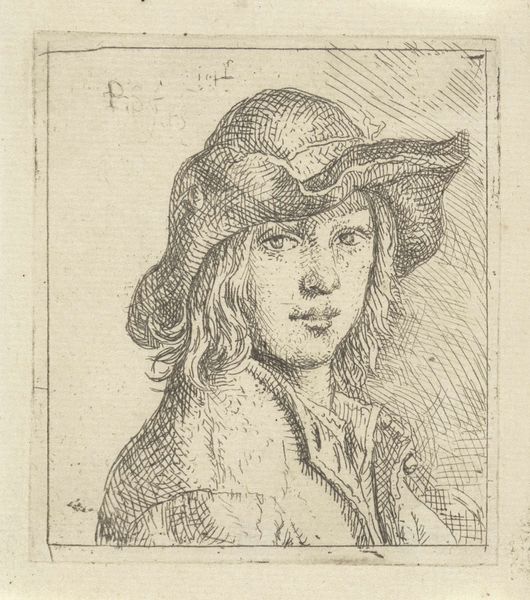
drawing, print, paper, pencil, chalk, graphite, black-chalk
#
portrait
#
drawing
# print
#
figuration
#
paper
#
11_renaissance
#
pencil
#
chalk
#
graphite
#
northern-renaissance
#
black-chalk
#
watercolor
Dimensions: 113 × 122 mm
Copyright: Public Domain
Editor: This drawing, "Bust of a Young Man with Hat," is attributed to Cornelis Visscher, dating back to the Renaissance. It's a chalk drawing on paper, currently residing at the Art Institute of Chicago. It’s striking how casually elegant the young man seems; almost rebellious. What do you see in this piece beyond a simple portrait? Curator: It’s more than just a portrait; it's a social document. Think about the hat, the way he wears it, the tilt, combined with that seemingly confident, direct gaze. During the Renaissance, clothing and accessories weren't mere decoration; they signaled status, affiliation, and even dissent. This young man is presenting a very specific image of himself, likely calculated to challenge norms. Editor: So, the hat becomes a form of protest? Curator: Potentially. Or, perhaps, a statement of allegiance to a particular group or philosophy. We need to consider who he was, his social position, and what statements like this might mean during this period. The loose style of the drawing itself hints at a departure from more rigid, traditional forms, suggesting a move toward individualism. Consider, also, who had the means to commission or create such a portrait. This wasn't a depiction of the working class. Editor: That makes me rethink the seemingly casual nature of the piece. It is all very deliberate. Curator: Precisely. It forces us to ask questions about identity, power, and representation. How does he want to be seen, and what power structures are at play in constructing that image? Editor: I never thought I could see such social dynamics in one drawing. It’s a real lesson in looking beneath the surface. Curator: Absolutely. Art is rarely just art. It's a mirror reflecting the complexities of its time and inviting us to engage in a critical dialogue with the past and the present.
Comments
No comments
Be the first to comment and join the conversation on the ultimate creative platform.
